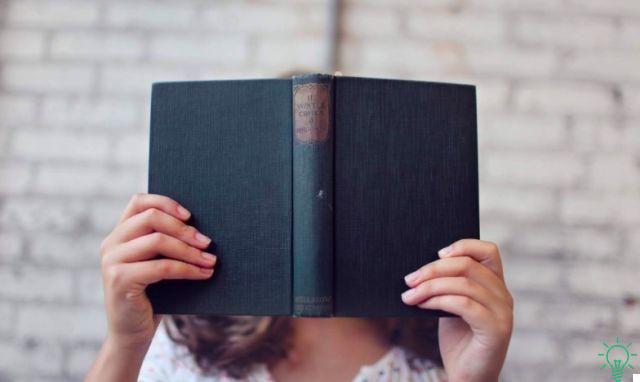
Last week a reader, Maria, wrote to me asking for advice on memorizing a play script.
Now memorizing a script is difficult, and it is even more so for a stage actor.
In fact, twenty takes of the same scene cannot be made in the theater, as in the cinema.
Instead, he presents himself on stage in front of the audience, e you have to remember everything, there and in that moment, in spite of the tension, the lights, the thousand distractions and anxieties that can attack you all of a sudden.
Just like a university exam, it's just worse.
It is in fact a very different effort from the memorization it takes to study.
Because you have to learn concepts and data from a book. While a theater script must be learned word for word.
Plus, no matter how scary a professor might be, he's still less anxious than fooling around in front of an audience of hundreds of people who've paid for a ticket to see you.
So, in today's post, you will find:
- part of the email response I sent to Maria
- a micro theatrical memorization exercise done in real time by me
- some tips and an App
The goal is to teach you to memorize a script quickly and confidently.
Whether you're an actor or not, it's a great and fun exercise.
Because the loci technique is ideal for the actor
An actor must remember the part in its exact sequence.
First therefore, since the loci are an ordered system, they are ideal for acting as a "mnemonic store" on which to store the beats.
Then, each locus provides a very safe foothold for the piece of information to remember.
Many actors have, sooner or later, the experience of having a suit empty memory.
And if they memorized the part by simply repeating it 100 times, there is no way to get past the void.
Their brains search here and there without finding anything, as if it were blocked.
The locus, on the other hand, is there, ready to act as a foothold and save the actor at any moment.
Finally, the loci technique is also a good remedy for anxiety.
In fact, familiar and relaxing paths of loci are often used, and walking them in the mind while you are on stage helps you to take away the fear.
Here is a link to learn more about the loci technique, but in the meantime a clarification:
You don't have to use the word-for-word loci technique.
Because memorizing a script word for word with memory techniques is feasible but difficult.
You should in fact make one enormous creative effort to turn every word into an image!
Above all, using a locus for each word is not necessary at all.
Let's see why.
Exercise to memorize a script
When using memory techniques to memorize a script, you need to focus on:
- Beginning of each bar
- Keywords
- Logical connections
Let me explain with an example.
Let's say you have to play the part of Lopachin in “Il Giardino dei Ciliegi”.
And that you have already built your own beautiful path of Loci on which to memorize it.
Let's start together then from the first bar of Lopachin:
LOPACHIN "The train has arrived, thank God. What time is it?"
To remember it, you create the image of the train and insert it in the first locus of your project "Il Giardino dei Ciliegi"
At this point you have two options:
- - Settle for the "train" incipit, which is what I recommend. Indeed normally it is the incipit that escapes from the mind, the rest is remembered accordingly, by mere repetition.
- - Find other images on the train image for the rest of the sentence. For example, one for "thank God", and the other for "what time is it"
In this second case you could, for example, imagine that the train arrives with God inside, looking impatiently at the time.
I have already talked in the articles “remembering through images” and “visual memory” of why and how images are extraordinary for remembering.
So in this I simply point out that if you really were at the station and you saw a train coming with God in it, well, you would never forget it again.
Now, however, let's continue with two more bars
DUNJAŠA “It is shortly to two o'clock. It's already clear "
LOPACHIN “But how late is this train? It will be at least two hours. Smart that I am, you breed of beast! I came all the way here on purpose to go and wait for them at the station and I didn't wake up ... I sat down and fell asleep. Too bad ... At least you woke me up.
Let's skip the Dunjasa part and focus on Lopachin.
First of all, don't try to remember the particle "but" with which the measure begins. You need little in this case.
Remember instead "delay", creating a good mental image that represents him.
And make it contain an emotional element of disappointment, which is exactly what Lopachin feels.
Then create an image also for "race of beast", which however you will not attack in a locus of its own, but I would attach to the image of the delay. Because we are in the same joke. If it were a new measure instead, you would use the next locus.
The following part, “I came…”, does not need an image in my opinion. In fact, it seems logical and easy to remember after "race of beast": Lopachin explains to himself why he calls himself a beast!
While in the next piece you created an image for the word "sit". Just as you will have to create an image to remember the incipit of the final sentence, "at least you ...".
Does it seem cumbersome to you? Follow me in my interpretation of Lopachin
In the part of Lopachin
Let's say I'm the actor who plays Lopachin, and I go out on stage.
I am very excited, and I have had very little time to study my part.
But I have memorized, in a series of Loci arranged inside my house, some images that will guide me throughout the performance.
So I start from the first locus (eg the door of my house), and I see the image of the "train" mentally associated with it (which is probably also in the scenography).
So I begin, smoothly and without any anxiety:
"The train has arrived, thank God, what time is it?"
(Note: If I'm really terrified of the first two minutes of the stage, I also associated an image for "Thank God" and one for "what time is it" to that of the train)
At that point I await Dunjasa's natural response.
When she finishes, I'm mentally in the second Locus, I see the image I created for "delay" and I blur:
"But how late is the train? it will be two hours "
Then I see, delayed, the image for "race of beast" and so I go on
"What kind of beast I am".
And I wonder why I am.
Well, I'm going on mentally, because:
"I came to the station on purpose to wait for them and I didn't wake up".
Isn't it logical?
At that point I see "sitting" attached to "race of beast" and I continue:
"I sat up and fell asleep."
Finally, I see the last image.
It is a MINUS, to represent "at least". (I recommend that you find an image that is always the same for each of these correlation particles).
And I conclude:
"At least you woke me up!"
At this point, I double check how I fared:
I was not very precise in my memory, on the other hand I did everything in a hurry, but it is acceptable as a first memorization, right?
Rather, I would say very good for having been done in the two minutes in which I wrote it.
E 'I just had to remember "train" on the first locus, and "delay" on the second. To then attack directly to "delay", in sequence, "breed of beast" "sit" "less".
In the end I had to create and associate 4 images to be able to easily extricate myself in the "raw" memorization of about sixty words!
Not bad. I will have time to refine it and make it perfect.
Also because then, by immediately comparing the errors / forgetfulness with the correct text, I will further strengthen the natural memory that derives from repetition.
And this thanks to the mechanism of feedback so we remember things better after getting them wrong.
Memory techniques and natural memory
As you have seen, when you use memory techniques to memorize a theatrical script, you cannot ignore natural memory.
In other words, you will have to repeat each sentence, check it and perfect memorization. But it'll take you a hell of a lot less time.
Also because when you work on a theatrical text with the loci technique, you deepen it better.
You are in fact forced to ask yourself, for each sentence:
- The reason it is there
- What is its key concept
- What images are worth selecting for remembrance
- How everything is logically linked to what comes before and after
For example, in Lopachin's second sentence, the theme is disappointment right from the start.
First he turns it to the delayed train, then to himself (race of beast), and finally to Dunjasa (at least you ..).
And so, immediately, when you find the image for "delay", insert an emotional note of disappointment in it. And then remember that it's sequentially directed at three different objects.
In summary, if when you study a part you do this work of analysis on keywords, incipits, logical links, you deepen it and memorize it much more quickly.
And you won't even have to resort to loci to remember it after a while: the words will come out naturally.
But the locus will always be there to help you in case of a memory lapse.
Memorize the whole script?
However, the theater actor must not only memorize his part.
He also has the problem of memorizing when it is his turn to speak.
For example, Lopachin must know that he has to speak again after Dunjasa said "it's already clear".
In this case it is simple, because it is a two-way dialogue. But sometimes things get very confusing.
One option is to memorize yourself the whole script, but frankly it's not necessary.
In fact, it may be enough to use memory techniques to insert a "trigger" image that reminds you that it's up to you. (In the example above, the image for the word "clear").
Or, without memory techniques, practice with someone who reads the other parts. Because if you read them yourself you are constantly distracted and cannot create the feeling of dialogue.
And if you really don't have someone always available to practice with, you can use an App that is very popular among professionals, and which is called rehearsal.
You upload the script you are interested in and she recites the lyrics for the other actors, gives you signals when it's your turn, helps you deepen your character, makes you add or remove comments, and a bunch of other things.
Conclusions
Thanks to Maria, who asked me for advice on memorizing a script made me tackle a very interesting and different topic.
Now it's up to you.
If you have had experience as an amateur actor, write me to tell me your story.
If you've never had them, think about it for a moment:
Memorizing a script is a very intense memory challenge, which I recommend you do even if you are not an actor.
So choose a play that you like, a character you want to do, and put yourself to the test.
The feeling of being on stage and impersonating someone is not only thrilling, but also very informative. A greeting! Anthony.


























